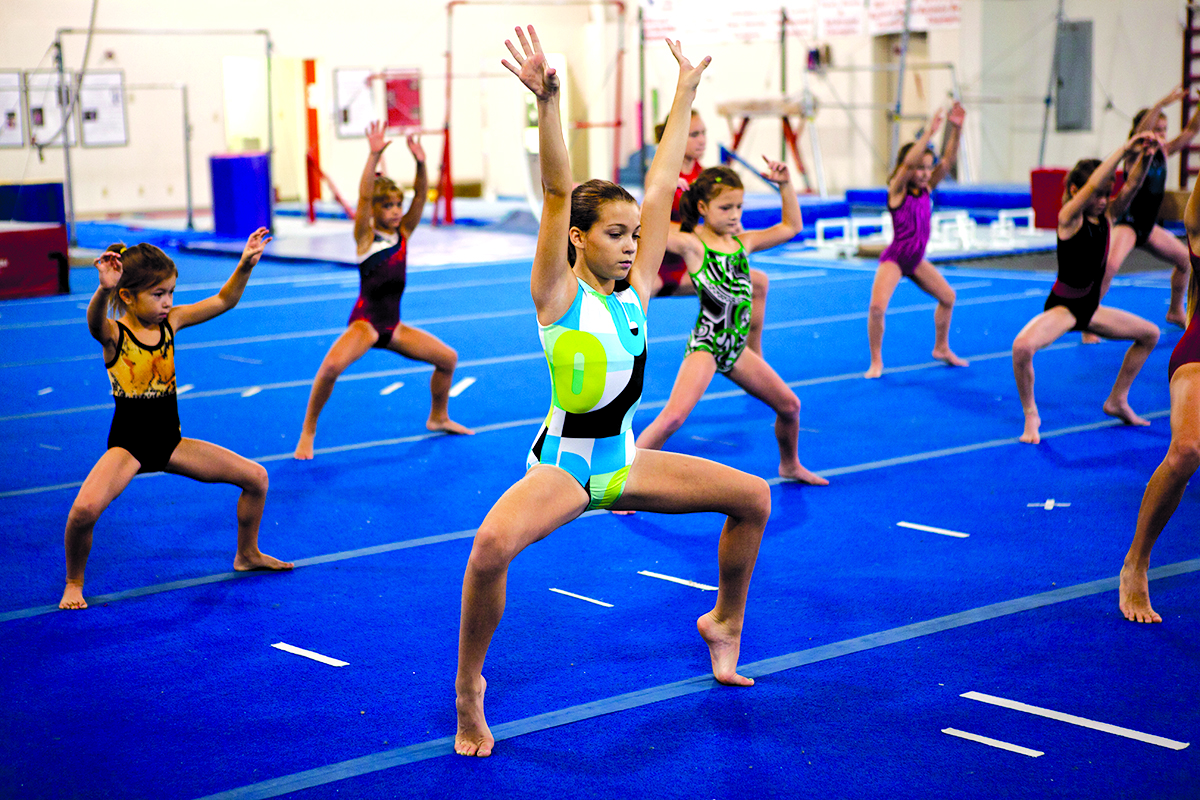Olympics Inspire Local Youth

by Lisa Thompson
During the 2012 Summer Olympics, the entire country, and really the entire world was captivated by the display of international sportsmanship, strength, dedication and perseverance that athletes from across the globe showed day after day in London.
Stars like Gabby Douglas and the “Fabulous Five” Olympians have brought gymnastics into each of our homes this year by bringing home gold. Their finesse and power are truly impressive, and they captivated audiences as they competed in the uneven bars, vault, floor exercise, balance beam, rings, parallel bars and pommel horse.
So, how did these athletes make it to the worldwide stage to compete in the most daunting and nail-biting showcase of their lives? It started small. In fact, for most of them, it started in a gym similar to Texarkana’s very own Northeast Texas Elite Gymnastics club.
They compete in an organization called USA Gymnastics, which leads up to the Olympic trials.
Coaches and owners, Lloyd and Amy White provided a bit of insight.
“Besides the obvious strength and coordination, students at Northeast Elite learn perseverance, goal-setting, focus, teamwork, confidence, courage, commitment, physics, biology, and biomechanics, “ said Amy White, whose passion for gymnastics was born after watching Soviet-born gold medal winner Olga Korbut compete in the 1972 Munich games.
“Our recreational classes are 1 hour per week,” White said. “Our competition teams train from a minimum of 4 hours per week up to as much as 30-35 hours per week for our most advanced athletes. “
While that seems like a lot of training to most people, these athletes are truly dedicated to their sport.
White said, “We live in a world of instantaneous gratification, but research shows us that it takes a minimum of 400 correct attempts for an Elite gymnast to be able to perform a new skill safely without spot or assistance and hundreds more before that skill is ready for competition. If a gymnast performs ten correct skills per week during his or her training that would be ten months of training to get one skill.”
Parents should know that even if your child is not on pace to be the next gold medal winner, gymnastics can still serve an important purpose in your child’s health and development. Gymnastics is the perfect way to get your little one active and moving from an early age.
White said the ideal time to start gymnastics classes is pre-school to kindergarten age, because those students have a clean slate from which to start learning locomotor skills.
Lastly, it is important to recognize that the road to success in gymnastics is mired with a lot of competition, a lot of challenges, and the pressure and scrutiny of the highest caliber. Athletes who have succeeded are to be regarded with the utmost respect and honor, and to those who have only started dreaming, best of luck!








